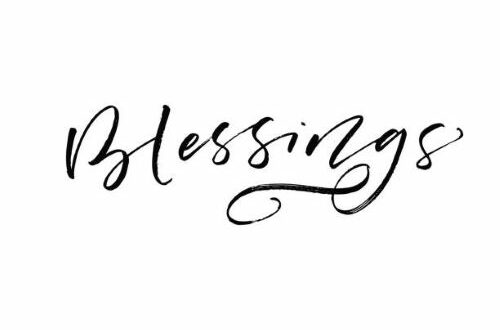Bonhoeffer on Quieting Our Inner Critic
How do you respond when people frustrate you? When their vision is smaller, their personalities grate, their pride annoys, their fears quash progress? German pastor Dietrich Bonhoeffer knew how to speak truth. As the Lutheran Church of Martin Luther fell under the spell of Adolph Hitler, he boldly joined the dissenting “Confessing Church,” becoming one of Hitler’s earliest and staunchest critics. But his commitment to speaking truth was tempered by great love. In his book, Life Together, he challenges our Western penchant for radical individualism, even (especially!) in the church, and shows us, better than anyone I’ve ever read, the beauty and freedom of a ministry of forbearance to others who offend and try our patience.
If you love God, love and serve his church, then perhaps, like me, you find sometimes that the church, instead of being a community of fellow-sinners and fellow-travelers, becomes something of an idol. Actually, it’s not the church itself, it’s my vision of the church…the First Perfect Church of Lael. Those of us who can see just how wonderful things could be if we could just move people from “here” to “there” have to live with what Bill Hybels calls “holy frustration.” Sometimes the frustration, instead of being steeped in love and offered in prayer to God, shows up in criticism and complaints to or about others, or withdrawal and wall building.
Bonhoeffer warns us, “the [one] who fashions a visionary ideal of community demands it be realized by God, by others and by himself. He enters the community of Christians with his demands, sets up his own law, and judges the bretheren and God himself accordingly.” Instead, Bonhoeffer, who knows what it’s like to see the church you love fall into deception, who knows what it’s like to live in a persecuted church and who will soon know what it is like to live in prison for his opposition to the Fuhrer, encourages us to “…enter into that common life not as demanders, but as thankful recipients.
"We thank God for what He has done for us. We thank God for giving us bretheren who live by his call, by his forgiveness and his promise. We do not complain of what God does not give us; we rather thank God for what he gives us daily.”
In Christian fellowship we always approach others, Bonhoeffer writes, through the person and love of Christ. Jesus stands between me and my brother or sister. “I must release the other person from every attempt of mine to regulate, coerce and dominate him with my love. The other person needs to retain his independence of me; to be loved for what he is, as one for whom Christ became man, died and rose again, as one for whom Christ bought forgiveness of sins and eternal life…I must meet him only as the person that he already is in Christ’s eyes.”
“Spiritual love…knows that the most direct way to others is always through prayer to Christ….”
Later on in a section entitled “The Ministry of Holding One’s Tongue” Bonhoeffer expands on the idea. As we learn to yield our tongues and critical thoughts to the Lord Jesus we will be able to “cease from constantly scrutinizing the other person, judging him, condemning him, putting him in his particular place…now he can allow the brother to exist as a completely free person, as God made him to be. His view expands, and…he sees, shining above his brethren, God’s creative glory."
"God did not make this person as I would have made him. He did not give him to me as a brother to dominate and control, but in order that I might find above him the Creator…God does not will that I should fashion the other person according to the image that seems good to me; rather in his very freedom from me God made this person in his image. I can never know beforehand how God’s image should appear in others.”
Finally, in a section on “The Ministry of Bearing” Bonhoeffer shows how this means more than showing sympathy, or even empathy. He concludes that it is precisely this freedom of others that is a burden to us as it collides with our own autonomy.
How do we bear with our sisters? We let God create his image in the other person. And we willingly bear the burden of her freedom. “The freedom of the other person includes all that we mean by a person’s nature, individuality, endowment. It also includes his weaknesses and oddities, which are such a trial to our patience, everything that produces frictions, conflicts and collisions among us.” To bear with our sister or brother means “involvement with the created reality of the other, to accept and affirm it, and in bearing with it, to break through to the point where we take joy in it.”
We do this, he says, because we see how the Lord Jesus bears with us. The burden of our freedom was so heavy that He had to endure the cross. “God took men upon himself and they weighted him to the ground. But God remained with them and they with God." Our ability to enjoy unbroken fellowship with God and one another was secured by the power that raised Jesus from the dead.
I blogged about this because I need to keep this vision of forbearance on the front burner. I need the quick, ready reference and continual reminder. Even if you don’t.
Ephesians 4:1-3 I therefore, a prisoner for the Lord, urge you to walk in a manner worthy of the calling to which you have been called, with all humility and gentleness, with patience, bearing with one another in love, eager to maintain the unity of the Spirit in the bond of peace.



3 Comments
Dee Brestin
thank you
Since my church is going through struggles, this was so good, Lael. Thank you.
Doulos Hal
A word fitly spoken…
Thank you for a word fitly spoken… Proverbs 25:11. I have been led to add this scripture to my morning prayer time due to lack of mastery in this area Luke 6:27,28. The rest of that text is on target as well: Luke 6:29-38.
Dawn Wilson
A Transforming Concept
"I can never know beforehand how God’s image should appear in others" – a powerful thought, whether we're considering our spouse, our children, our co-workers, our friends in the Body of Christ, our good neighbor or the homeless man who disturbs our peace.
Bearing with another's freedom is a transforming concept.